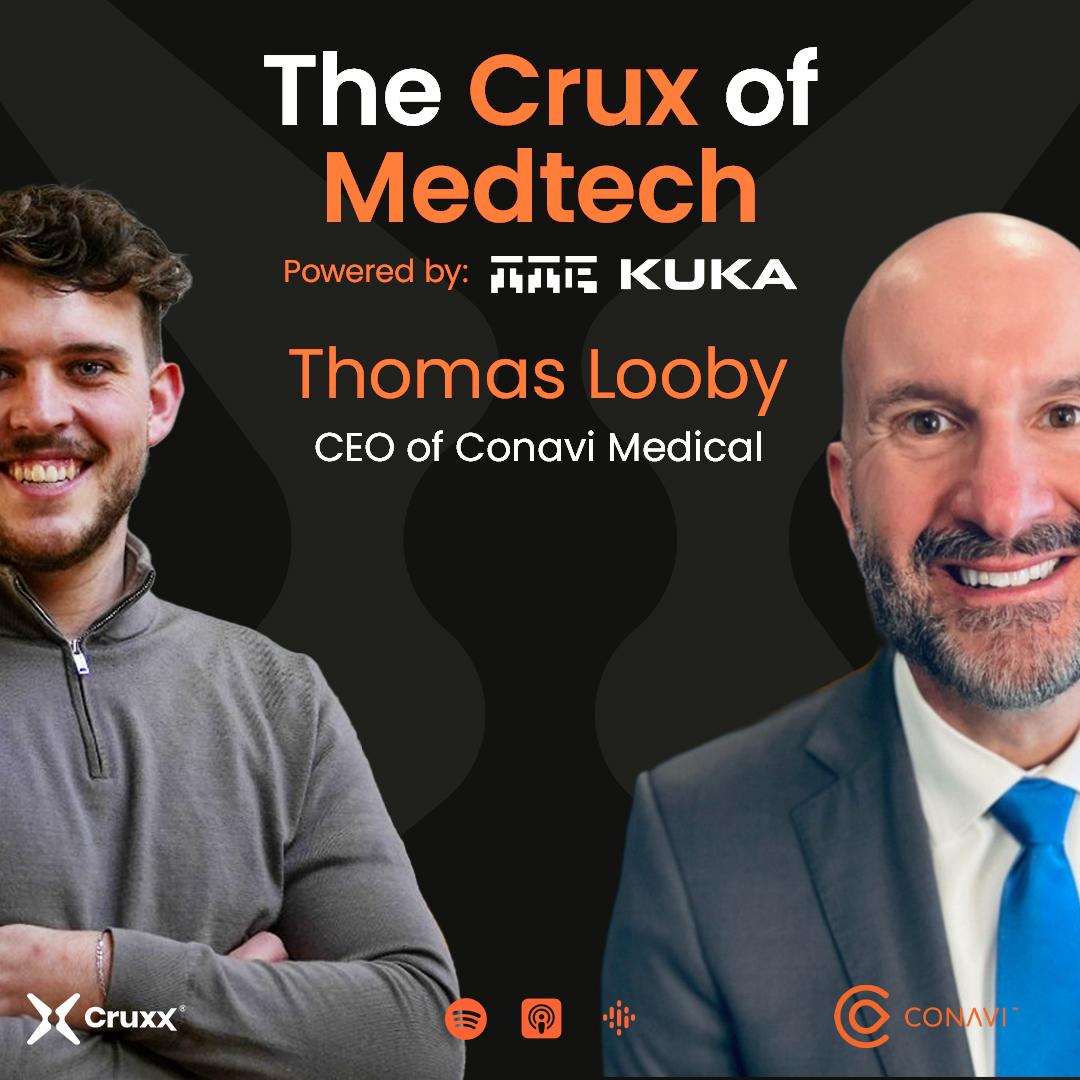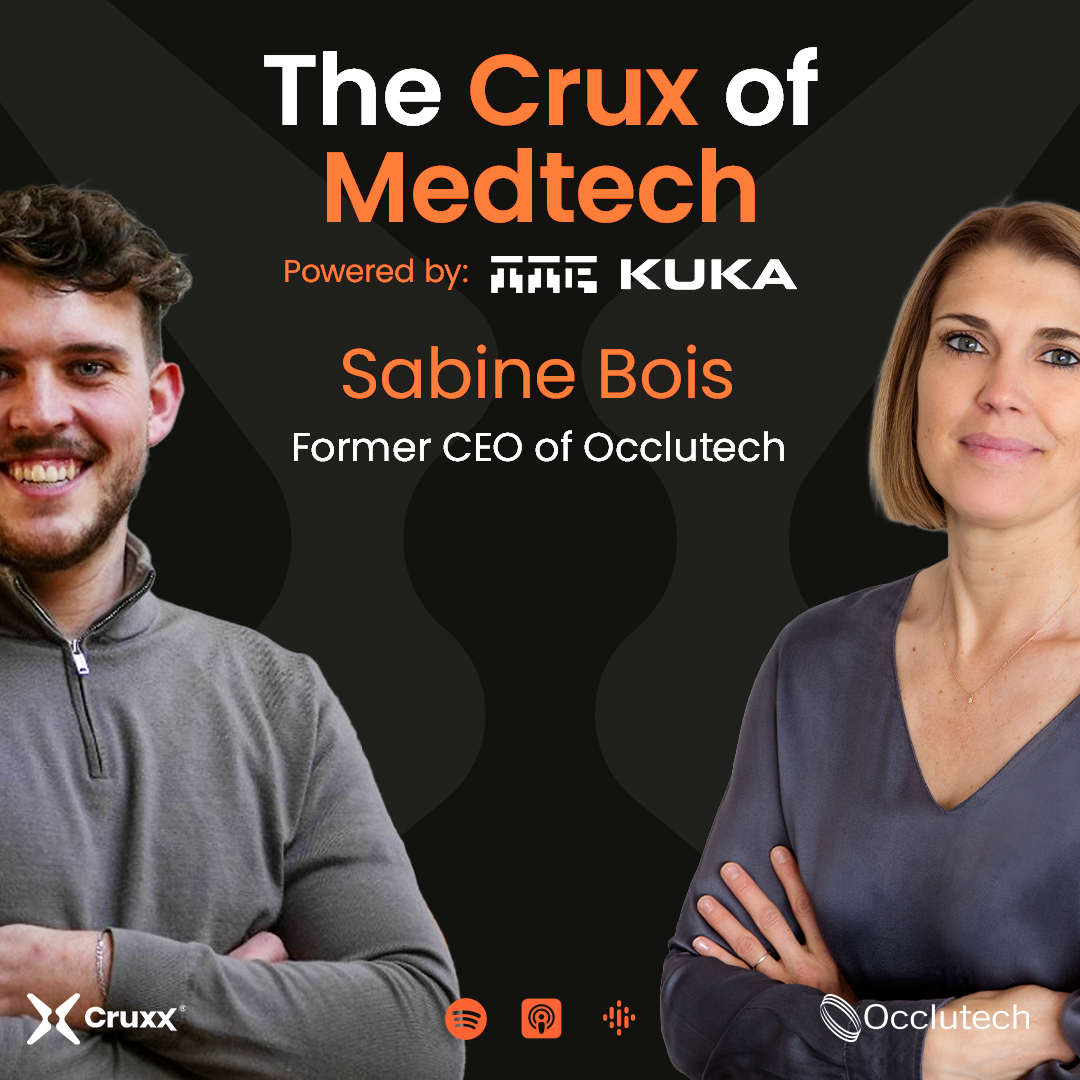Who are Interventional Systems and what do you do?
Interventional Systems is a medical device manufacturer of miniature robotic devices. Our guided imagery system is in the minimally invasive surgical space. We believe that we can more or less standardise the workflow of any kind of image guidance solution. Our focus is on supporting percutaneous procedures, and we are starting our first steps on the commercialization journey. Even though we are a 10 year old company, we have always focused on innovation and r&d before commercialising our products in our core markets, which currently are interventional radiology, radiology and oncology. We’re expanding through strategic partnerships, such as the one we have with Accelus for spine surgery, or the one we filed with Medtronic for the Grinnell project.
What are your partnerships like, and how do they benefit the company?
I'll start with Accelus. In 2019, we identified that the spine market was in need of not only economical innovation, but something that would address the constraints related to practicality and costs of having a robot similar to other fields. Large robots have large footprints that force you to work contralateral to the system and do not allow you to use live imaging. Currently there are very expensive units that are not really suited to the AC market. We realised it was the right time to work in this field, because ACs were ramping up and nobody had a strategy to penetrate the global AC market. We had the right footprint, the right price point and a great technology, so we partnered with very seasoned individuals in the spine markets. We gathered big names and good technology to develop this fusion robotic system. That was a true partnership between our two entities. We also teamed up with a company in Florida called Integrity Implants to form Accelus.
In China, things are a little bit different. Most Western robotics companies have taken the opportunity to partner with Chinese companies, because the market in China has its own dynamics. Usually what happens is that you team up with an implant company, and you'll develop the product locally for these markets. We partnered with an interventional spine and sports medicine company called Ningbo Hicren, which allows us to tackle more markets under one registration. Together we created a company called Sino-European MicroRobotics, which has allowed us to go to market in China.
What's the big benefits of going down the partnership route?
Well, implants run the business. A robot is nothing but an enabling technology that allows you to target the body in a more accurate way. Even before we started working there, there had been a consolidation in the spine market where any company that has robotics also has implants, and the implants are what makes the business. However, we are not an implant company, so for us, it was obvious that we needed to partner with someone who is. When it comes to developing the robotic system and the navigation system, you really need seasoned professionals that know how to run the business. If those people sign up with us, that shows that it's good technology, because they're putting their seal of approval on it. It was obvious that if we wanted to really make an impact upfront, we couldn’t spend a decade trying to get in, so this was the way to go. If you don't partner, you will always spend much more time and money trying to build everything in house. We like to partner because we want our system to be used by as many people as possible.
With these partnerships, what opportunities do you see in the future, and why should more people look to do the partnership route?
For a small company that is in a scale up phase like us, there's not really a choice. Either you really specialise in a field and you raise a bunch of money, to build products and use brute force to make your product penetrate the market, or you find a good partner. Specialisation will limit the amount of things you can do, but it also gives you an advantage because you’re really good at what you do. We are specialists in robotics, that's what we do. We believe that all companies should be open to partnership, because that will allow them to access new fields that they wouldn't explore otherwise. It offers possibilities, minimises risks and exposes you to different markets. That allows you to differentiate yourselves. We owe that to our shareholders, and ultimately to the patients. That's why we decided to do this.
Robotic companies are starting to realise that cross pollination between fields and companies is beneficial. I do expect that we'll see more of these partnerships in the future. Ultimately, big corporate companies will want the technology that innovators like us are creating. For us, the more differentiated you are, the better you are positioned for the future. If you are in seven or eight different fields, and these fields overlap in a strategic way, you’re a much better target for potential exit or acquisition opportunities. Partnerships are about creating good opportunities for patients and the people in your company.
To learn more about partnerships in the Surgical Robotics industry, tune in to The Surgibots Podcast here.





